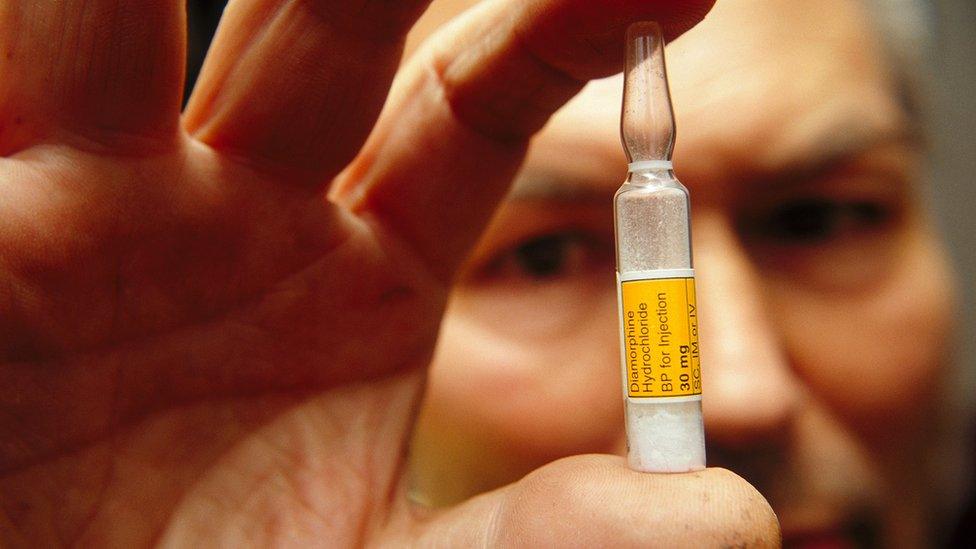Drugs: Fake opioid selling will get worse - ex-addict
- Published
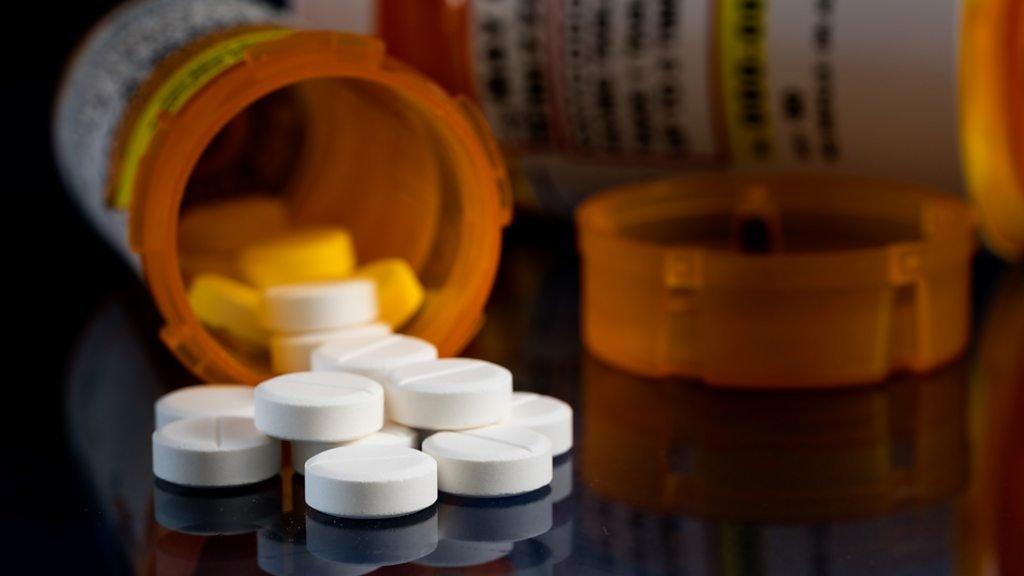
"It's going to kick off like nobody's ever seen before. It's just the tip of the iceberg," says Vinne
By his early 20s, Vinnie Condron was £60,000 in drug debt and says he survived a shooting meant to kill him.
"I should have been dead 10 times over. I don't know how I'm not."
Now 45, he said he did not care about the drugs he was taking at the time after becoming hooked on heroin at 14.
He spoke as health experts raised concerns about the number of substances being bought from so-called 'online pharmacies' in the belief they are legitimate pharmaceutical products.
"I bought them on the street corners," he said. "I bought them off the internet. I knew they were fake, but because I needed them I was just taking them and hoping for the best."
Welsh Emerging Drugs and Identification of Novel Substances (Wedinos) analysed 4,979 samples last year and found two out of every five contained "unknown substances", up from 35% in 2021-22.
Bromazolam was the most commonly identified illicit drug - and also the substance most likely to be sold under the belief the buyer was buying something different - often diazepam. These so-called "fake benzos" have been labelled extremely toxic, potent and deadly.
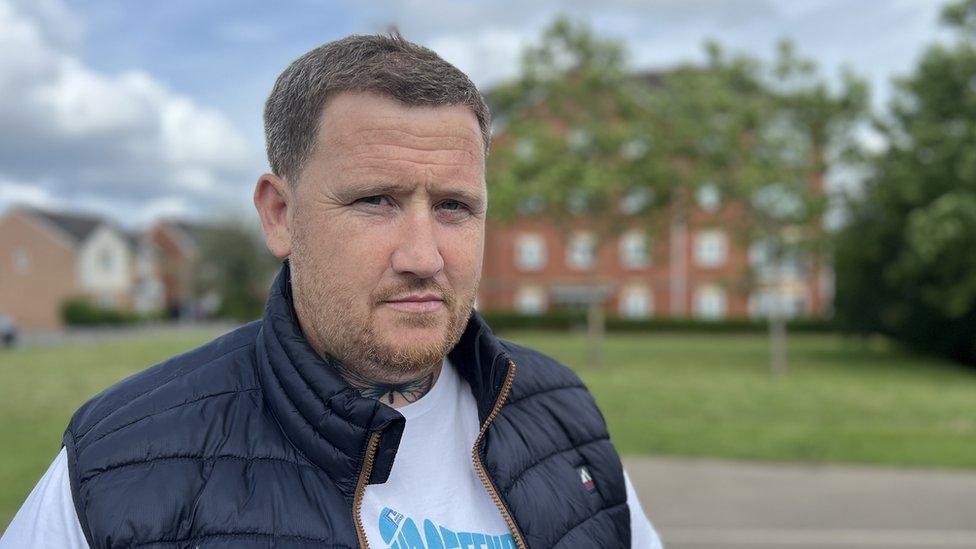
"These are organised crime drug dealers who are in it for the money," says Vinnie Condron
The former addict from Cardiff said people would needlessly die because more drugs were being mixed with something the buyer was not expecting.
"I've taken tablets and I've woken up two days later in a cell, not knowing how I got there, what I've done - thinking I murdered somebody or something. That is the state these things will put you in. Because I didn't know what was in them pills."
He got caught in a cycle of committing crime to buy more drugs.
He said he was "full on addicted, like to heroin and crack and benzodiazepines," but believed he got through it because "somebody's watching over me".
After a life of taking and selling drugs, he said his life had now turned around. He helps people addicted to drugs with the charity, Kaleidoscope and with Cardiff and the Vale health board, after being assisted by services in the Welsh capital.
"I had undiagnosed PTSD from being a teenager," he said.
"I've had all that trauma therapy, I'm still going through it. And it's also enabled me to volunteer within drug services.
'I've lost probably about 17 friends'
"I'm proud of what I do now. My addiction is a part of me. It doesn't define me but it's got me to where I am now," Vinnie said.
"I'm shaping the way services are going to be delivered in the next 20 years.
"I've lost probably about 17 friends. Most of them were from heroin but probably seven of them have been through fake benzos (benzodiazepines).
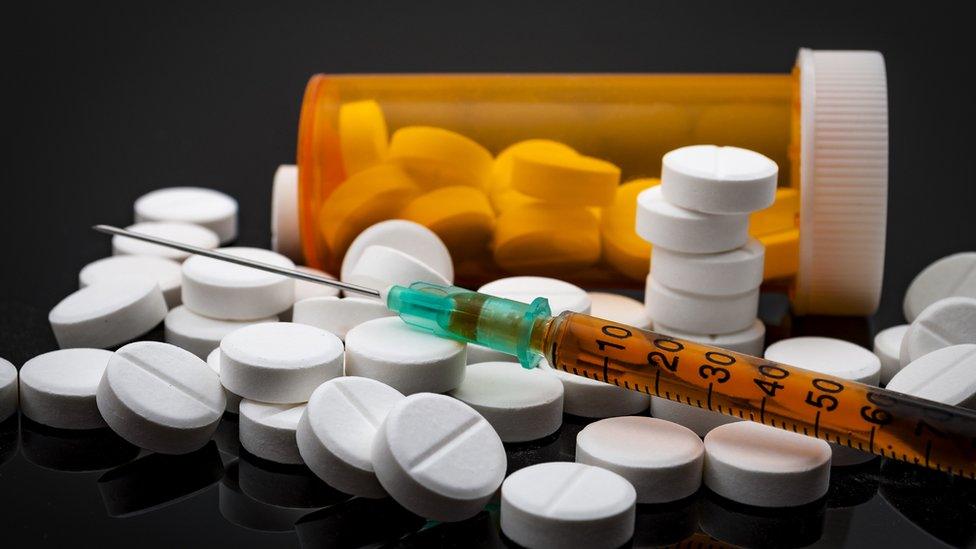
Vinnie Condron says the industry is "going to kick off like nobody's ever seen before"
"If I can educate one teenager, no matter where they are, and make them think twice about what they're buying online, that's my goal.
"90% of the money it costs to produce these things is spent on the packaging, not what's in it. There's no level of care.
"These are organised crime drug dealers who are in it for the money. They don't care about the average, like somebody's son or somebody's parent... that's dying because of these things.
"You can go on the internet. And you can look up like these fake doctors and fake pharmacists, selling them as diazepam, or whatever, but none of it is what it says on the tin.
"This message needs to get out there. Fake benzos in the next 12 months is going to go astronomical. All the heroin is going to die off.
"It's going to kick off like nobody's ever seen before. It's just the tip of the iceberg."
In 2021, 61 drug misuse deaths in Wales involved benzodiazepines, up from 35 in 2020.
In the latest year of testing Public Health Wales experts also identified 36 samples as nitazines, a synthetic opioid. In all of the cases, the purchaser did not intend to buy it.
The charity Kaleidoscope runs projects to help those addicted to substances across Wales and supports upwards of 10,000 people a year.
Its chief executive Martin Blakebrough said: "Generally, people are getting used to using the internet to buy drugs. Problem is, is the online pharmacy legitimate?"
He believes people will start looking at synthetic drugs as the supply of opioids gets cut in Afghanistan, which provides about 95% of the UK's heroin market.
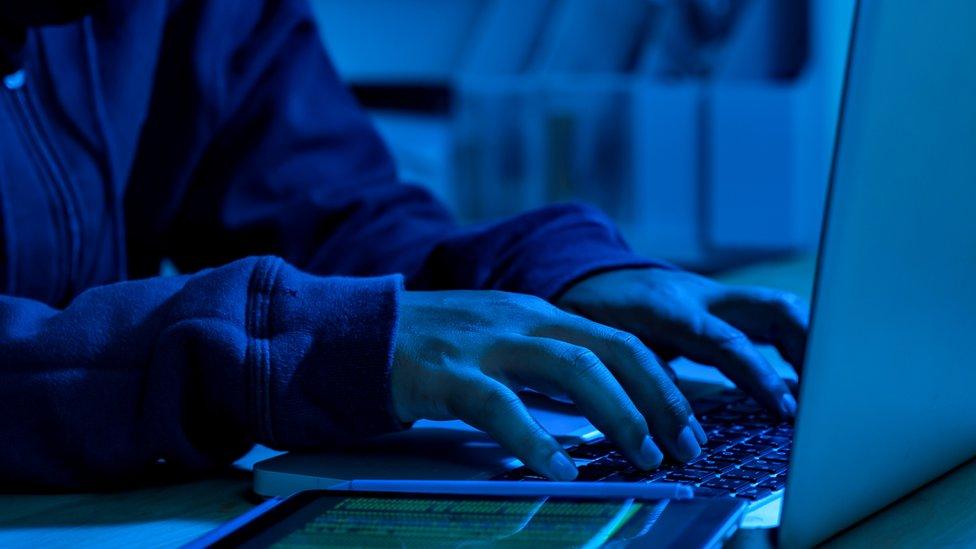
Fake drugs being sold on the internet and the packaging makes it hard to tell real from fake
"The heroin supply will be in trouble… because the Taliban in Afghanistan are forbidding it and making it very difficult for growers. You could see that as a positive. But if people want to get out of their heads on something, they will still look at other options," he said.
"The other option is pharmaceutical drugs which are often far more dangerous.
"They're packaged extremely well. So it's very difficult to work out what is genuine from what is fake on the internet."
Kaleidoscope, alongside other drug charities such as Transform, have written to the Welsh government calling for an emergency public health response, citing concerns in the United States where fentanyl has been used instead of heroin.
The letter warns of a further rise in drug deaths unless urgent action is taken.
"If this ban (by the Taliban) is sustained it is likely to lead to a severe reduction in heroin supply, risking our country's illegal heroin market being displaced by dramatically more risky drugs including synthetic opioids (notably nitazenes and fentanyl) and benzodiazepines," the letter said.
"We have approached the Scottish government who have expressed their serious concern at the potential of this situation."
The charities have also called for increased surveillance to alert authorities to the types of drugs people are taking.
- Published19 March 2018
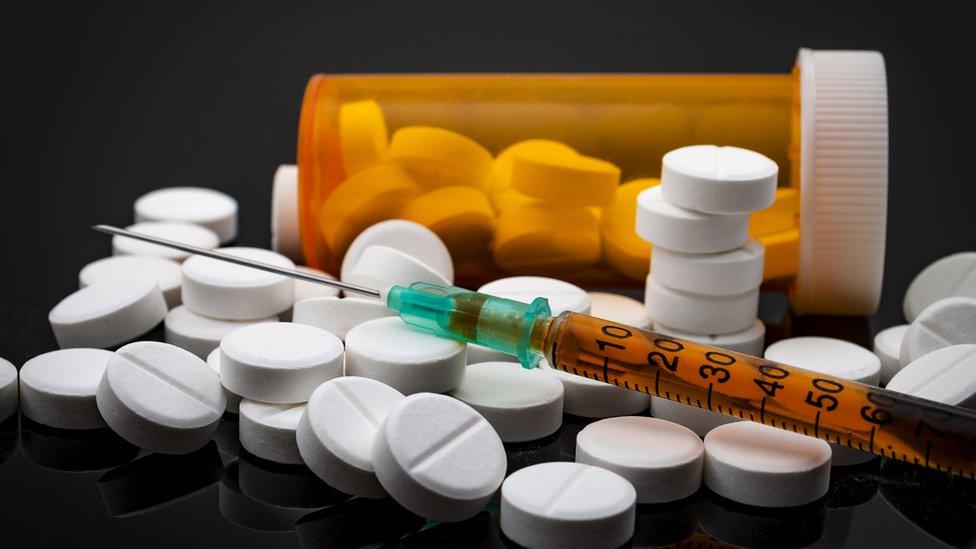
- Published3 August 2022
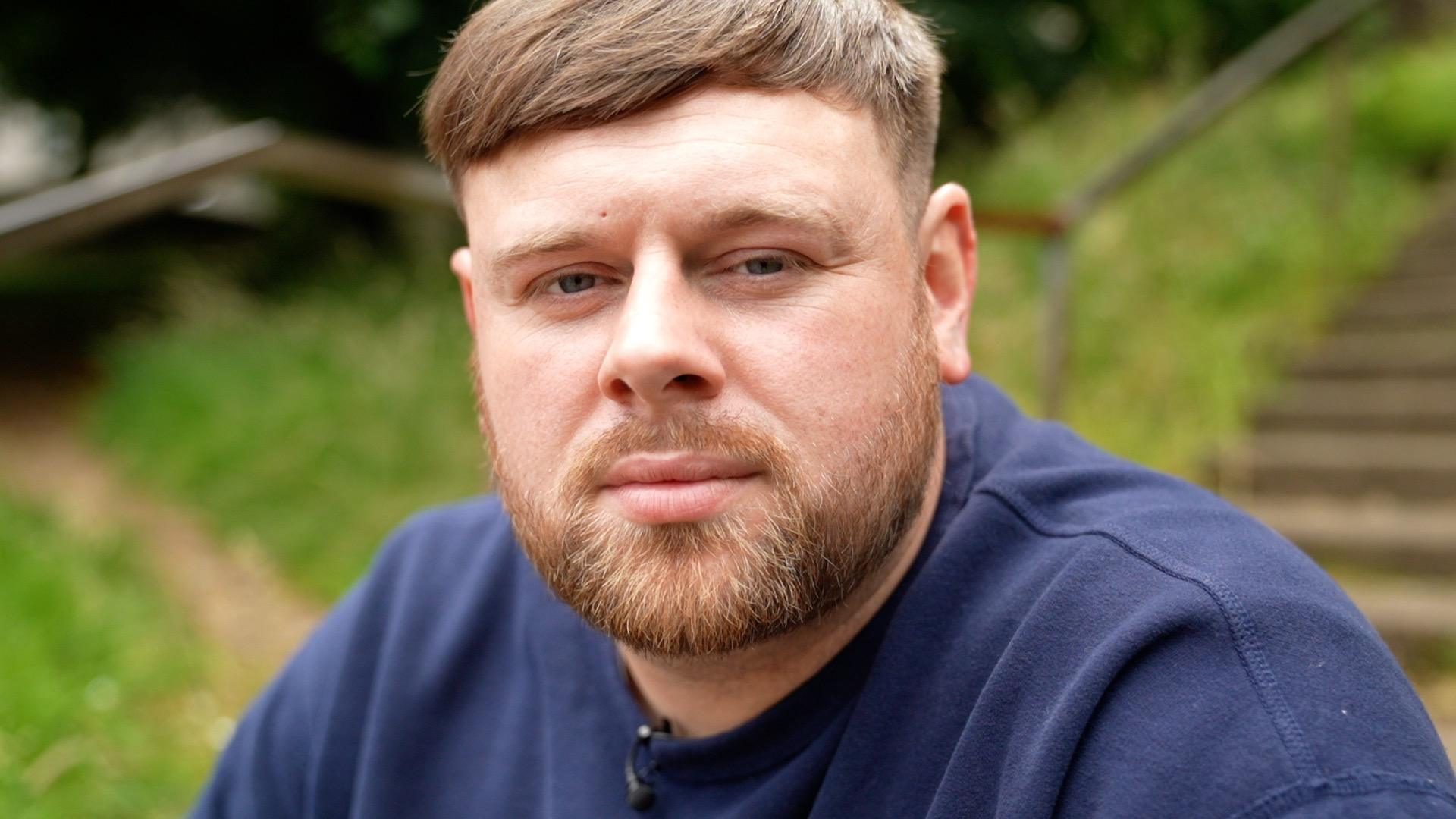
- Published5 October 2022
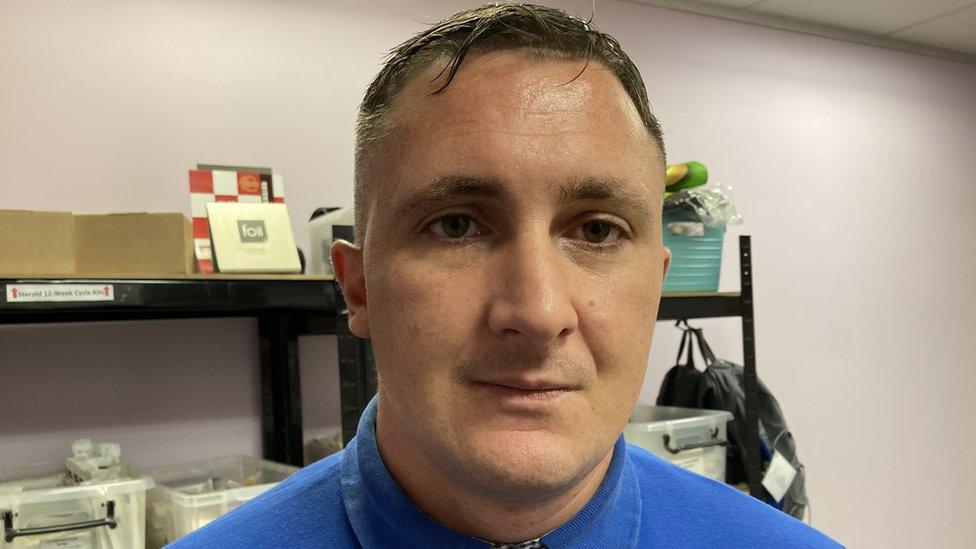
- Published11 June 2022
